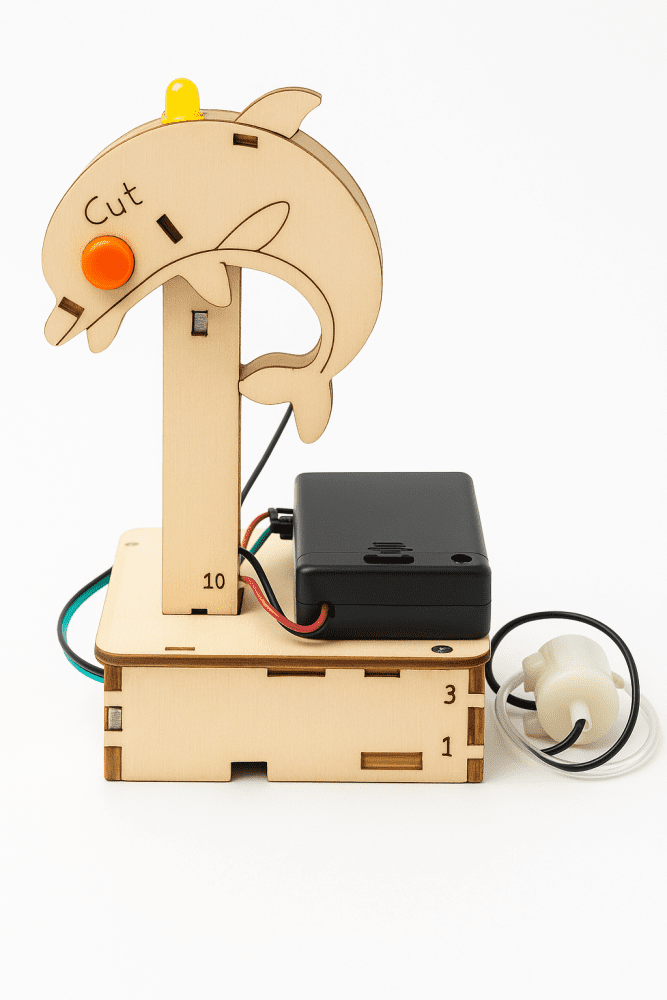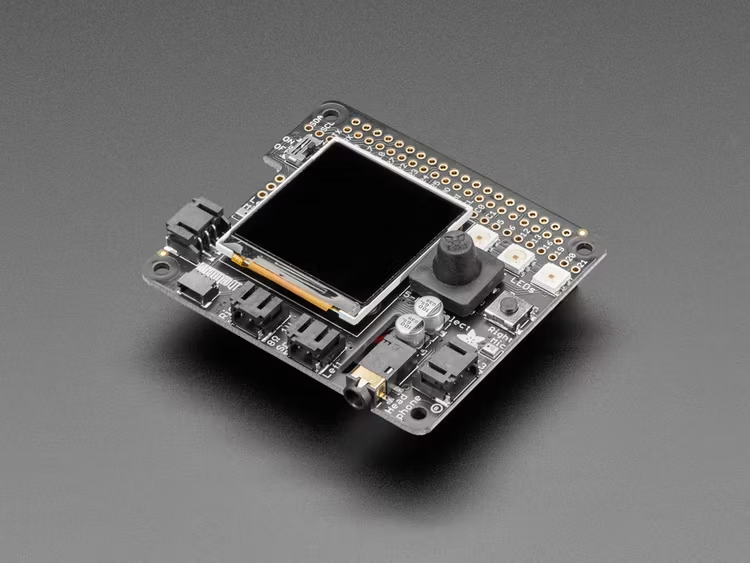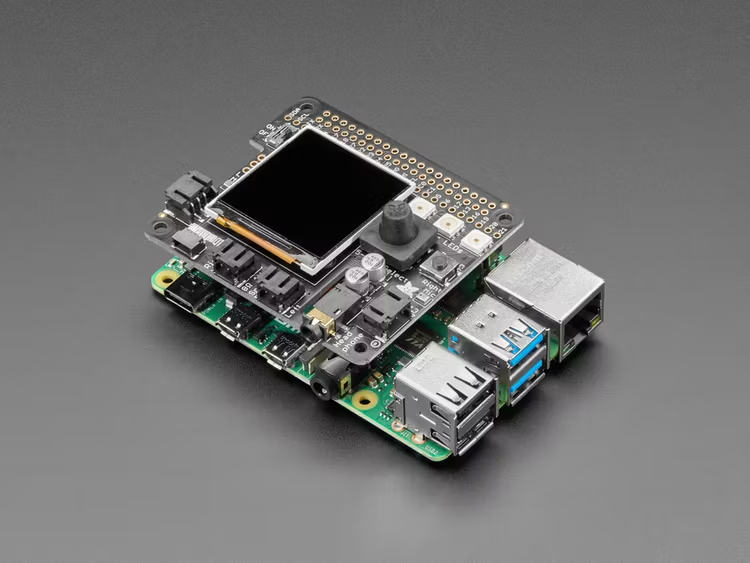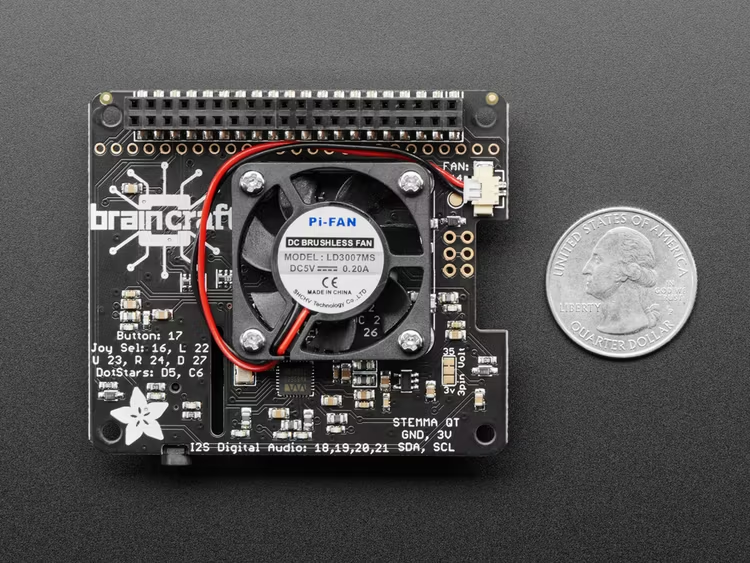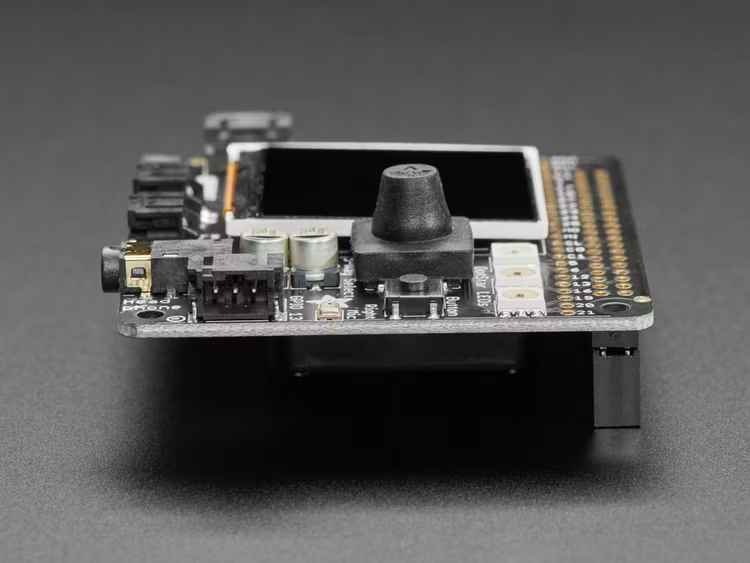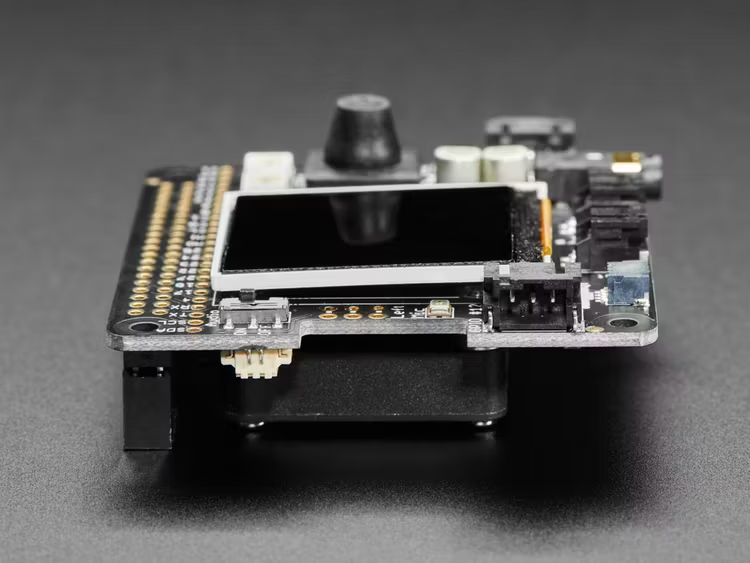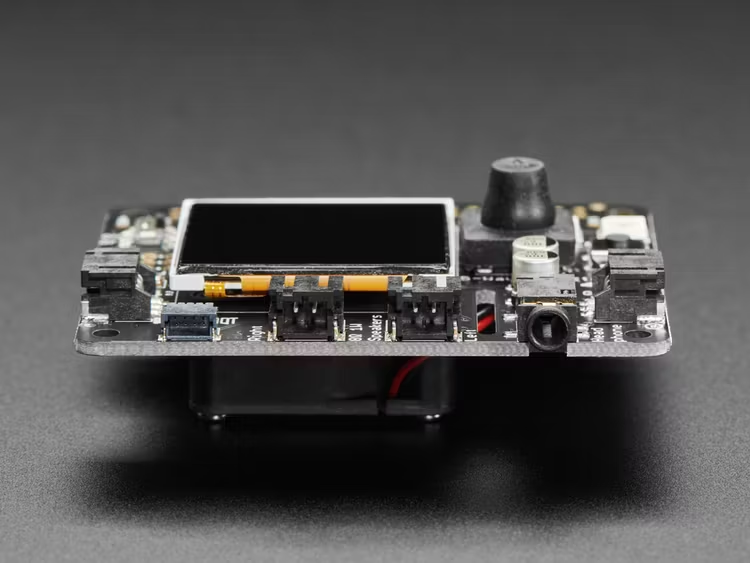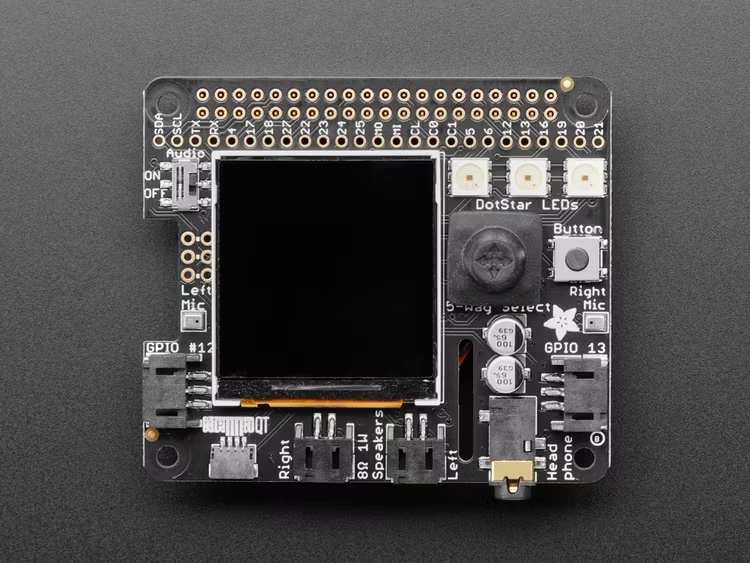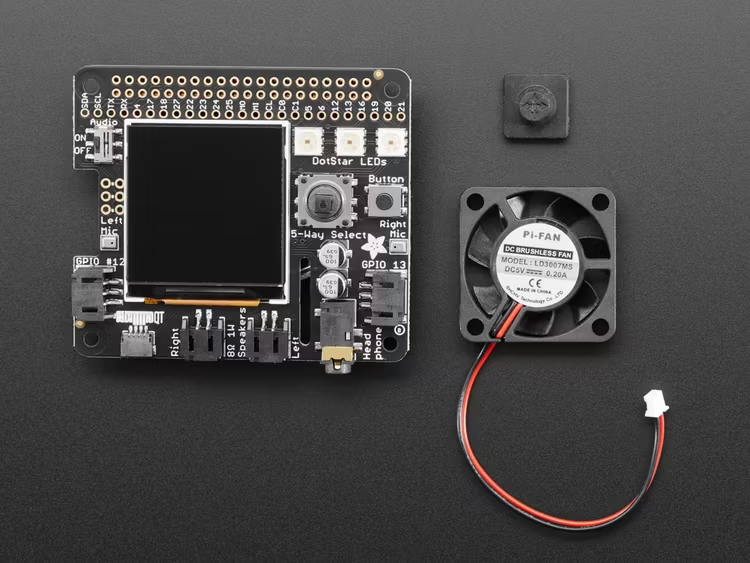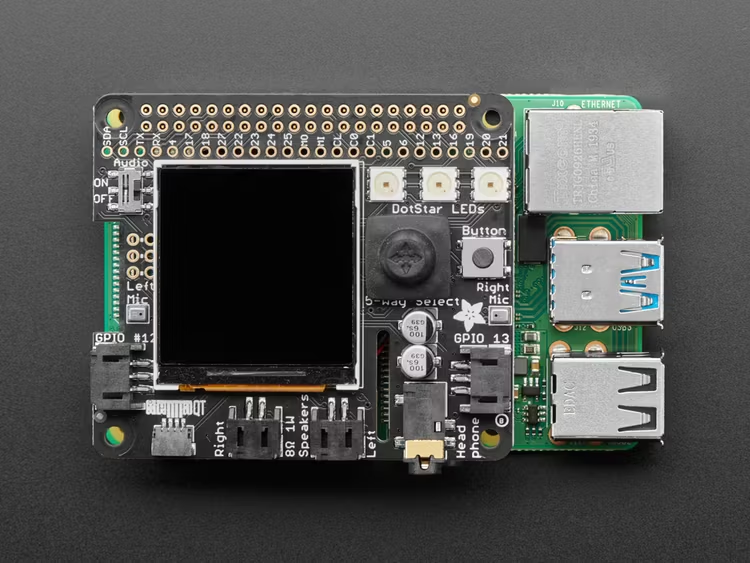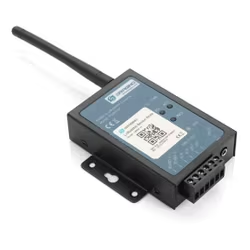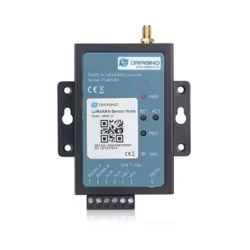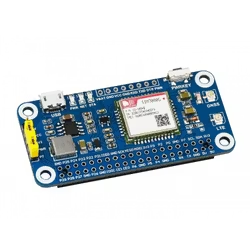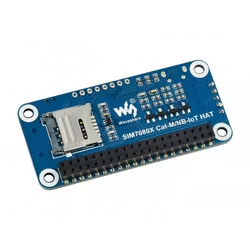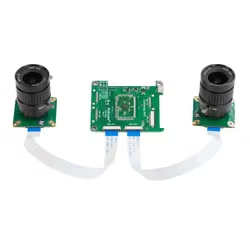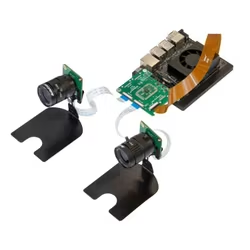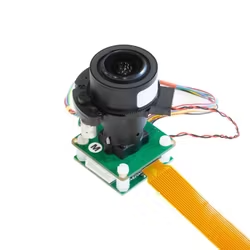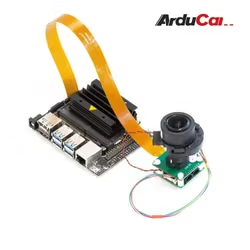The idea behind the BrainCraft HAT is that you’d be able to “craft brains” for Machine Learning on the EDGE, with Microcontrollers & Microcomputers. On ASK AN ENGINEER, our founder & engineer chatted with Pete Warden, the technical lead of the mobile, embedded TensorFlow Group on Google’s Brain team about what would be ideal for a board like this.
And here’s what we designed! The BrainCraft HAT has a 240×240 TFT IPS display for inference output, slots for camera connector cable for imaging projects, a 5 way joystick and button for UI input, left and right microphones, stereo headphone out, stereo 1 W speaker out, three RGB DotStar LEDs, two 3 pin STEMMA connectors on PWM pins so they can drive NeoPixels or servos, and Grove/STEMMA/Qwiic I2C port. This will let people build a wide range of audio/video AI projects while also allowing easy plug-in of sensors and robotics!
A controllable mini fan attaches to the bottom, and can be used to keep your Pi cool while doing intense AI inference calculations. Most importantly, there’s an On/Off switch that will completely disable the audio codec, so that when it's off there’s no way it's listening to you.
Features:
- 1.54" IPS TFT display with 240x240 resolution that can show text or video
- Stereo speaker ports for audio playback - either text-to-speech, alerts or for creating a voice assistant.
- Stereo headphone out for audio playback through a stereo system, headphones, or powered speakers.
- Stereo microphone input - perfect for making your very own smart home assistants
- Two 3-pin JST STEMMA connectors that can be used to connect more buttons, a relay, or even some NeoPixels!
- STEMMA QT plug-and-play I2C port, can be used with any of our 50+ I2C STEMMA QT boards, or can be used to connect to Grove I2C devices with an adapter cable.
- 5-Way Joystick + Button for user interface and control.
- Three RGB DotStar LEDs for colorful LED feedback.
The STEMMA QT port means you can attach heat image sensors like the Panasonic Grid-EYE or MLX90640. Heat-Sensitive cameras can be used as a person detector, even in the dark! An external accelerometer can be attached for gesture or vibration sensing such as machinery/industrial predictive maintenance projects.
TECHNICAL DETAILS


LEARN
Primary Guide: Adafruit BrainCraft HAT - Easy Machine Learning for Raspberry PiEasily use Machine Learning on a Raspberry Pi 4 using the BrainCraft HAT

 Svenska
Svenska
